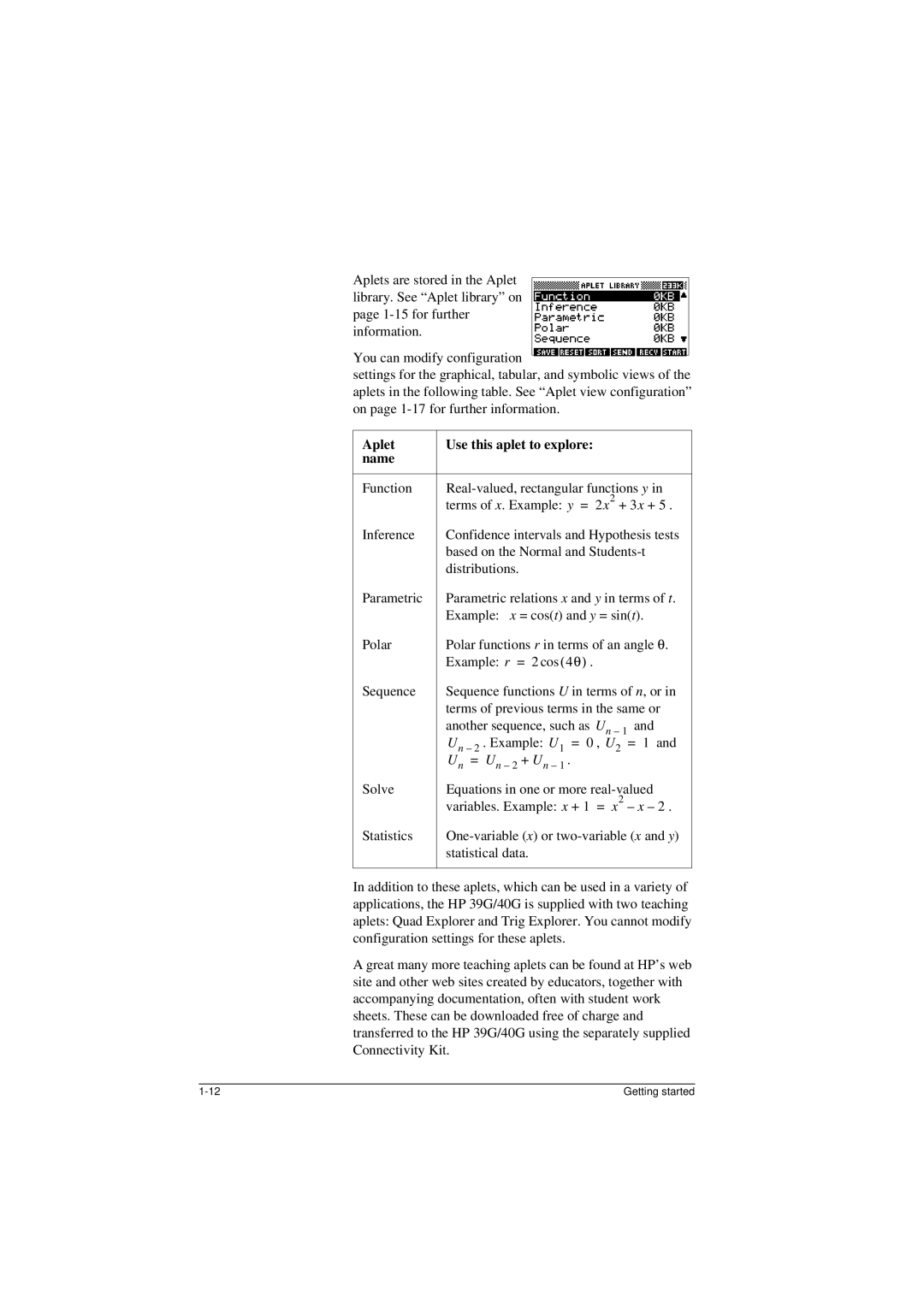
Aplets are stored in the Aplet library. See “Aplet library” on page
You can modify configuration
settings for the graphical, tabular, and symbolic views of the aplets in the following table. See “Aplet view configuration” on page
Aplet | Use this aplet to explore: |
|
name |
|
|
|
| |
Function | ||
| terms of x. Example: y = 2x2 + 3x + 5 . | |
Inference | Confidence intervals and Hypothesis tests | |
| based on the Normal and | |
| distributions. |
|
Parametric | Parametric relations x and y in terms of t. | |
| Example: x = cos(t) and y = sin(t). | |
Polar | Polar functions r in terms of an angle θ. | |
| Example: r = 2 cos (4θ) . |
|
Sequence | Sequence functions U in terms of n, or in | |
| terms of previous terms in the same or | |
| another sequence, such as Un – | 1 and |
| Un – 2 . Example: U1 = 0 , U2 | = 1 and |
| Un = Un – 2 + Un – 1 . |
|
Solve | Equations in one or more | |
| variables. Example: x + 1 = x2 – x – 2 . | |
Statistics | ||
| statistical data. |
|
|
|
|
In addition to these aplets, which can be used in a variety of applications, the HP 39G/40G is supplied with two teaching aplets: Quad Explorer and Trig Explorer. You cannot modify configuration settings for these aplets.
A great many more teaching aplets can be found at HP’s web site and other web sites created by educators, together with accompanying documentation, often with student work sheets. These can be downloaded free of charge and transferred to the HP 39G/40G using the separately supplied Connectivity Kit.
Getting started |
